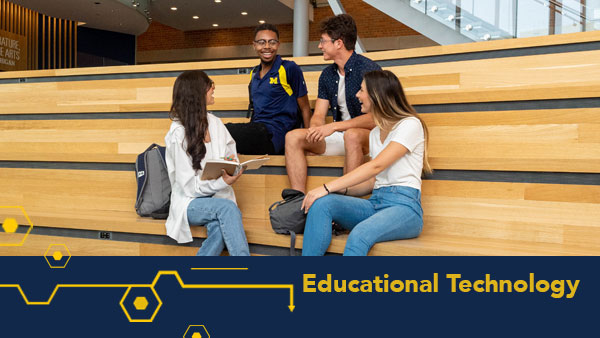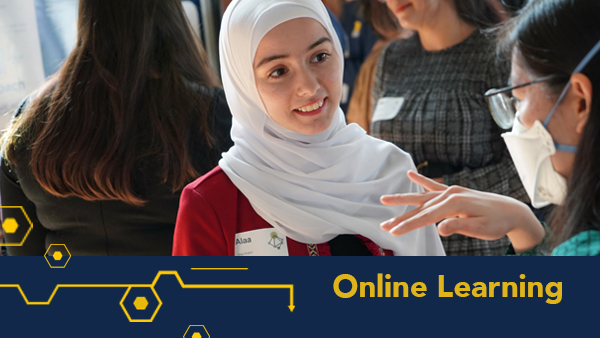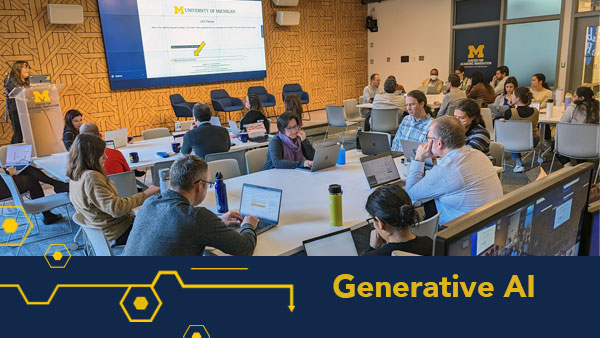Onawa Gardiner, Marketing Specialist
@onawanna
Professor August Evrard has led the development of the Academic Reporting Toolkit 2.0 (ART 2.0) in the Digital Innovation Greenhouse (DIG) housed within the Office of Digital Education & Innovation as a data visualization tool to promote informed decisions by enabling access to U-M course data. Recently made available to students in time for class backpacking and registration, ART 2.0 will foster increased student engagement by giving students freedom to explore more information about the curriculum through an interactive, easy to use platform that provides data about courses and academic programs based on the experiences of and feedback from past students.
With the launch of ART 2.0, we reached out to Professor Evrard to learn about his experiences developing the tool. He shared with us his perspective on how this newly launched initiative will contribute to the U-M community by leveraging data to enhance decision making and opportunities at U-M, ensuring the university continues to be a driving force for innovation.
What motivated you to develop the Academic Reporting Toolkit 2.0 as a resource for students?
The Academic Reporting Tools (ART 2.0) project aims to reveal more details about the texture and coloration of the rich, complex tapestry we call the curriculum of the University of Michigan. Why do this? Because informed decisions are almost always better than uninformed ones (think health care) and because, as a public institution, the university should strive for transparency in its operations within the limits allowed by common sense, available resources, and the law.
How does the Academic Reporting Toolkit leverage data?
Each year, a major public university like Michigan has tens of thousands of students and thousands of instructors woven within a dynamic curricular fabric of courses, service and field work, and other experiences. Like smart athletic wear, that fabric is instrumented with a growing variety of sensors that record activities and outcomes. Researchers in the emerging field of Learning Analytics are studying these data streams to improve understanding of how learning proceeds and how teaching practices may facilitate, impede, or otherwise affect the learning and critical thinking abilities of students.
What have been some challenges in developing and designing the Academic Reporting Toolkit to assist students with making decisions on courses and majors?
We have to expect occasional defects and design imperfections within the curricular fabric. Inevitably, some courses and professors will be more appealing to students than others, and this popularity may or may not be based on reasons considered “right” by some observer. Less inevitably, some student cohorts are not as successful as others. But how can we improve their chances of success without knowing what state they’re actually in?
What do you envision for the future of the Academic Reporting Toolkit 2.0?
A key issue before us is to shape our own views of what’s important and useful. Making the best use of this opportunity will require significant discussions with and among campus stakeholders – faculty, students, and administrators – to determine appropriate levels of transparency and access, and to design services that are simple yet powerful in their utility.
ART 2.0 is available. To learn more about the interactive platform; The Academic Reporting Toolkit 2.0

August Evrard
Arthur F. Thurnau Professor of Physics and Astronomy
College of Literature, Science, and the Arts
University of Michigan


